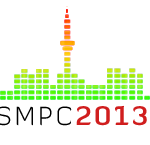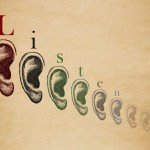SMPC Day 1: Session 1 (Improvements and enhancements)
I arrived in lovely sunny Canada yesterday after a pleasant 8 hour flight from London. I spent much of the flight chatting to my seat neighbour, a charming gentleman from the Punjab who was visiting his family in Canada for the first time in 40 years. Can you imagine the excitement of the receiving family!
I then spent an evening staving off the horrors of jet lag thanks to a great catch up session with my ‘sister by another mother’ Leigh Van Handel and my friends and collaborators Marcus Pearce and Andrea Halpern. As a result I was up until about midnight (5am London time – been a few years since I did that!) nursing a beer and some good laughs.
After a good 7 hour sleep I arrived refreshed and excited to attend the largest SMPC in history. Our meeting began with welcome addresses from the school of psychology and University, and some impressive facts and figures from the conference chair, Frank Russo and the program chair, Mike Schutz. Here come the numbers:
 “The 191 scheduled talks this year represents roughly double the historical norm of roughly 95 (based on metrics from the past 3 meetings). The posters story is similar– 94 here relative to an average of about 60 previously. We also have a special symposium on music therapy, which I think will be a great addition, as it will help to strengthen our ties with this important research discipline. This also explains why we had to go with a 4 track structure and 3 posters sessions, which are a lot based on our historical norms”.
“The 191 scheduled talks this year represents roughly double the historical norm of roughly 95 (based on metrics from the past 3 meetings). The posters story is similar– 94 here relative to an average of about 60 previously. We also have a special symposium on music therapy, which I think will be a great addition, as it will help to strengthen our ties with this important research discipline. This also explains why we had to go with a 4 track structure and 3 posters sessions, which are a lot based on our historical norms”.
Of course, this means that you get only a small fraction of info about the conference from me but here is a summary of what a saw this morning.
The first talk was by Jasmin Pfeifer (Dusseldorf, Germany) who had done a study looking at the speech intonation perception abilities of individuals with congenital amusia, a subject very dear to my own research heart. Having worked with amusics for 5 years I can get quite protective over them but I am always happy when people conduct studies to pinpoint what they may or may not find difficult to process.
Jasmine looked at their discrimination of typical statement/question stimuli (where the difference is the pitching of the final syllables) and replicated the finding that amusics do find these tasks difficult especially when the stimuli are within their range of pitch perception difficulties. She also used nice continuous and discrete versions of her stimuli, and found that continuous stimuli were harder, most likely due to the increased memory load in this condition.
It looks like Jasmine is planning to extend this pilot work to a systematic investigation of the phonetic impairments in congenital amusia, and I wish her well with that work.
Next was a talk by my colleague Amy Fancourt (Goldsmiths, UK). Amy is a PhD student of Professor Pam Heaton and she was presenting her research looking at musical memory in children with specific language impairment (SLI). It is known that children with SLI have difficulties with verbal memory – would this extend to similar difficulties with musical memory? If so, then it would add further support to the idea of a processing overlap in verbal and musical short-term memory systems.
Amy found that the SLI group showed significantly poorer memory for simple tonal melodies, especially when interval was changed but contour was maintained. She also showed that while there is a correlation between verbal and musical memory performance in control children, this correlation is absent in the SLI group.
All this data supports the idea of a verbal/musical short-term memory processing overlap and furthermore, that SLI children may adopt compensatory mechanisms for processing auditory stimuli, such as focusing on highly salient changes (contour over interval)
 The next talk was by Anne Luebke (Rochester, USA) who had carried out an interesting study of hearing in noise processing in children with autism spectrum disorder (ASD). Other labs, such as that of Nina Kraus, have shown that musical training can aid auditory processing skills like hearing in noise. Anne wondered if children with ASD would show better hearing in noise skills if they had musical training.
The next talk was by Anne Luebke (Rochester, USA) who had carried out an interesting study of hearing in noise processing in children with autism spectrum disorder (ASD). Other labs, such as that of Nina Kraus, have shown that musical training can aid auditory processing skills like hearing in noise. Anne wondered if children with ASD would show better hearing in noise skills if they had musical training.
She has also developed a new TINT paradigm (tones in noise test) to look at processing of music in complex soundscapes.
Anne found that children with ASD have impaired hearing in noise, a trend towards worse TINT performance (not significant at present) but that increased musical training can ameliorate this effect.
The good news was that while Anne found a correlation between number of years musical training and better hearing skills in children, she did not find an effect related to age of training onset – i.e. it does not matter if you start at 3 or 7, those with equal years of training see similar effects. So, like I always say, it is never to late to start learning music and reaping the benefits.
 After that positive message I sneaked out to write this blog for you, dear reader, before heading to the next session on singing and education, where I would be acting as the chair (resist the obvious joke…)
After that positive message I sneaked out to write this blog for you, dear reader, before heading to the next session on singing and education, where I would be acting as the chair (resist the obvious joke…)
